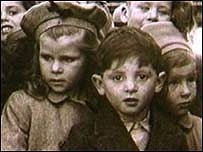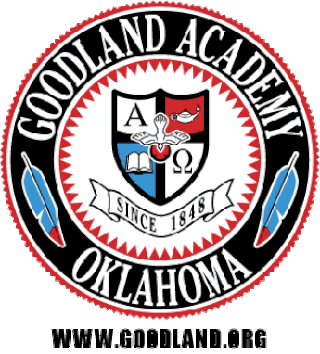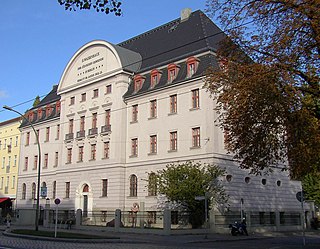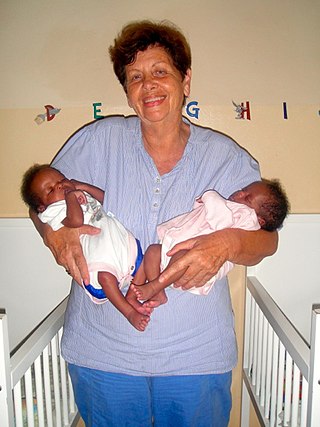
An orphanage is a residential institution, total institution or group home, devoted to the care of orphans and children who, for various reasons, cannot be cared for by their biological families. The parents may be deceased, absent, or abusive. There may be substance abuse or mental illness in the biological home, or the parent may simply be unwilling to care for the child. The legal responsibility for the support of abandoned children differs from country to country, and within countries. Government-run orphanages have been phased out in most developed countries during the latter half of the 20th century but continue to operate in many other regions internationally. It is now generally accepted that orphanages are detrimental to the emotional wellbeing of children, and government support goes instead towards supporting the family unit.

Foster care is a system in which a minor has been placed into a ward, group home, or private home of a state-certified caregiver, referred to as a "foster parent", or with a family member approved by the state. The placement of a "foster child" is normally arranged through the government or a social service agency. The institution, group home, or foster parent is compensated for expenses unless with a family member. In some states, relative or "Kinship" caregivers of children who are wards of the state are provided with a financial stipend.

The Duplessis Orphans were a population of Canadian children wrongly certified as mentally ill by the provincial government of Quebec and confined to psychiatric institutions in the 1940s and 1950s. Many of these children were deliberately miscertified in order to acquire additional subsidies from the federal government. They are named for Maurice Duplessis, who served as Premier of Quebec for five non-consecutive terms between 1936 and 1959. The controversies associated with Duplessis, and particularly the corruption and abuse concerning the Duplessis orphans, have led to the popular historic conception of his term as Premier as La Grande Noirceur by its critics.
Spurgeons is a large national children's charity in the United Kingdom, working with vulnerable families, children and young people. It is based in Rushden, with several offices in the UK, and is a registered charity.

Beulah George "Georgia" Tann, was an American social worker and child trafficker who operated the Tennessee Children's Home Society, an adoption agency in Memphis, Tennessee. Tann used the unlicensed home as a front for her black market baby adoption scheme from the 1920s. Young children were kidnapped and then sold to wealthy families, abused, or—in some instances—murdered. A state investigation into numerous instances of adoption fraud led to the closure of the institution in 1950. Tann died of cancer before the investigation made its findings public. Tann's custom of placing children with influential members of society normalized adoption in the U.S., and many of her adoption policies have become standard practice.

Norwood, known legally as Norwood-Ravenswood, is a United Kingdom charity established in 1785 in the East End of London. Its name comes from its long-running home for Jewish children, Norwood Hall, in the south London suburb of West Norwood which opened in 1863 and closed in 1961.
The China Center of Adoption Affairs (CCAA) was established on June 24, 1996 by China's Ministry of Civil Affairs. The CCAA is responsible for the welfare of children in the care of Child Welfare Institutes (orphanages), domestic adoption, and international adoption.
Tennessee Children's Home Society was a chain of orphanages that operated in the state of Tennessee during the first half of the twentieth century. It is most often associated with Georgia Tann, its Memphis branch operator and child trafficker who was involved in the kidnapping of children and their illegal adoptions.
Child laundering is a tactic used in illegal or fraudulent international adoptions. It may involve child trafficking and child acquisition through payment, deceit or force. The children may then be held in sham orphanages while formal adoption processes are used to send them to adoptive parents in another country.

Goodland Academy is a boarding school located in Choctaw County, Oklahoma, 3 miles (4.8 km) southwest of Hugo in southeastern Oklahoma, U.S.. Founded in 1848 as a Presbyterian mission, it is the oldest private boarding school in Oklahoma still in operation.
Casa Viva is a non-profit organization based in Wheaton, Illinois and San Jose, Costa Rica. Casa Viva seeks to place children who have been separated from their families into a safe, caring family. Casa Viva is Spanish for “Living Families” or “Living Homes.” The model of international child care that Casa Viva has created:

The Hebrew Orphan Asylum of New York (HOA) was a Jewish orphanage in New York City. It was founded in 1860 by the Hebrew Benevolent Society. It closed in 1941, after pedagogical research concluded that children thrive better in foster care or small group homes, rather than in large institutions. The successor organization is the JCCA, formerly called the Jewish Child Care Association.
Orphanhood in Romania became prevalent as a consequence of the Socialist Republic of Romania's pro-natality policy under Nicolae Ceaușescu. Its effectiveness led to an increase in birth rates at the expense of adequate family planning and reproductive rights. Its consequences were most felt with the collapse of the regime's social safety net during the Romanian austerity period, which led to widespread institutional neglect of the needs of orphans, with severe consequences in their health and well-being. A series of international and governmental interventions have taken place since the 1990s to improve the conditions in orphanages and reform the country's child protection system, with variable degrees of success.
Porter-Leath, formerly known as the Children's Bureau, is a non-profit organization based in Memphis, Tennessee that serves children and families in the area. Porter-Leath was founded in 1850 as an orphanage and has since grown to six program service areas. The agency retains the early nature of its mission by providing foster care and has also expanded to early childhood education.
The New Orphan Houses, Ashley Down, commonly known as the Muller Homes, were an orphanage in the district of Ashley Down, in the north of Bristol. They were built between 1849 and 1870 by the Prussian evangelist George Müller to show the world that God not only heard, but answered, prayer. The five Houses held 2,050 children at any one time and some 17,000 passed through their doors before the buildings were sold to Bristol City Council in 1958.

Deinstitutionalisation is the process of reforming child care systems and closing down orphanages and children's institutions, finding new placements for children currently resident and setting up replacement services to support vulnerable families in non-institutional ways. It became common place in many developed countries in the post war period. It has been taking place in Eastern Europe since the fall of communism and is now encouraged by the EU for new entrants. It is also starting to take hold in Africa and Asia although often at individual institutions rather than statewide. New systems generally cost less than those they replace as many more children are kept within their own family. Although these goals have been made internationally, they are actively being working towards as reform and new reforms are put into practice slowly as is fit for each country.

Annie Chikhwaza is a Dutch missionary known as a 'Mother of Malawi' for her work with orphans in Africa through Kondanani Children's Village, an NGO, which has been called "a five star orphanage" and "a centre of excellence" in a Channel 4 documentary. Many of the orphans are survivors of HIV/AIDS and Chikhwaza has built a village at Bvumbwe in Thyolo District of Malawi which includes an infant care facility, children's homes, nursery school, primary school and farm.

Rydalmere Hospital is a heritage-listed former orphanage, psychiatric hospital and now university campus at 171 Victoria Road, Rydalmere, in the City of Parramatta, Sydney, New South Wales, Australia. It was formerly known as the Female Orphan School and Protestant Orphan School. It is now the Parramatta South Campus of the Western Sydney University. It was added to the New South Wales State Heritage Register on 2 April 1999.
Rising Ground is a large human services organization in New York City, with approximately 1,600 employees supporting more than 25,000 children, adults, and family members annually. Founded in 1831 as the Leake and Watts Orphan House, Rising Ground focused on providing child welfare services for much of its existence. Currently, Rising Ground services include child welfare, juvenile justice services, services for people with developmental and intellectual disabilities, special education school programs, services for survivors of gender-based violence, early childhood services, and services for unaccompanied minor children, among others. The organization has approximately 50 programs located at about three dozen sites in New York City and Westchester County, New York. In April 2018, the organization changed its name from Leake and Watts to Rising Ground.









